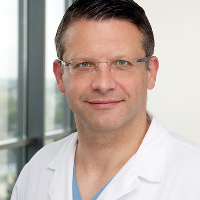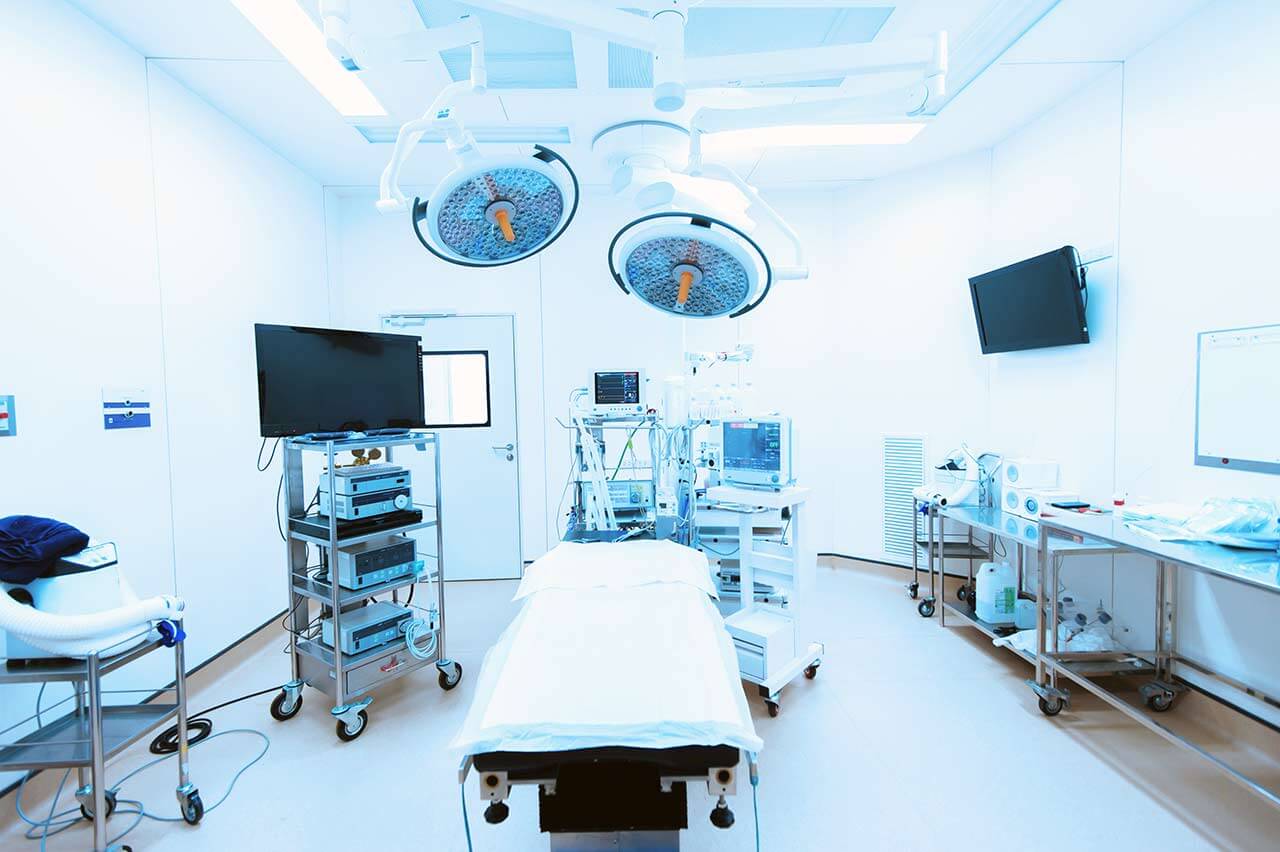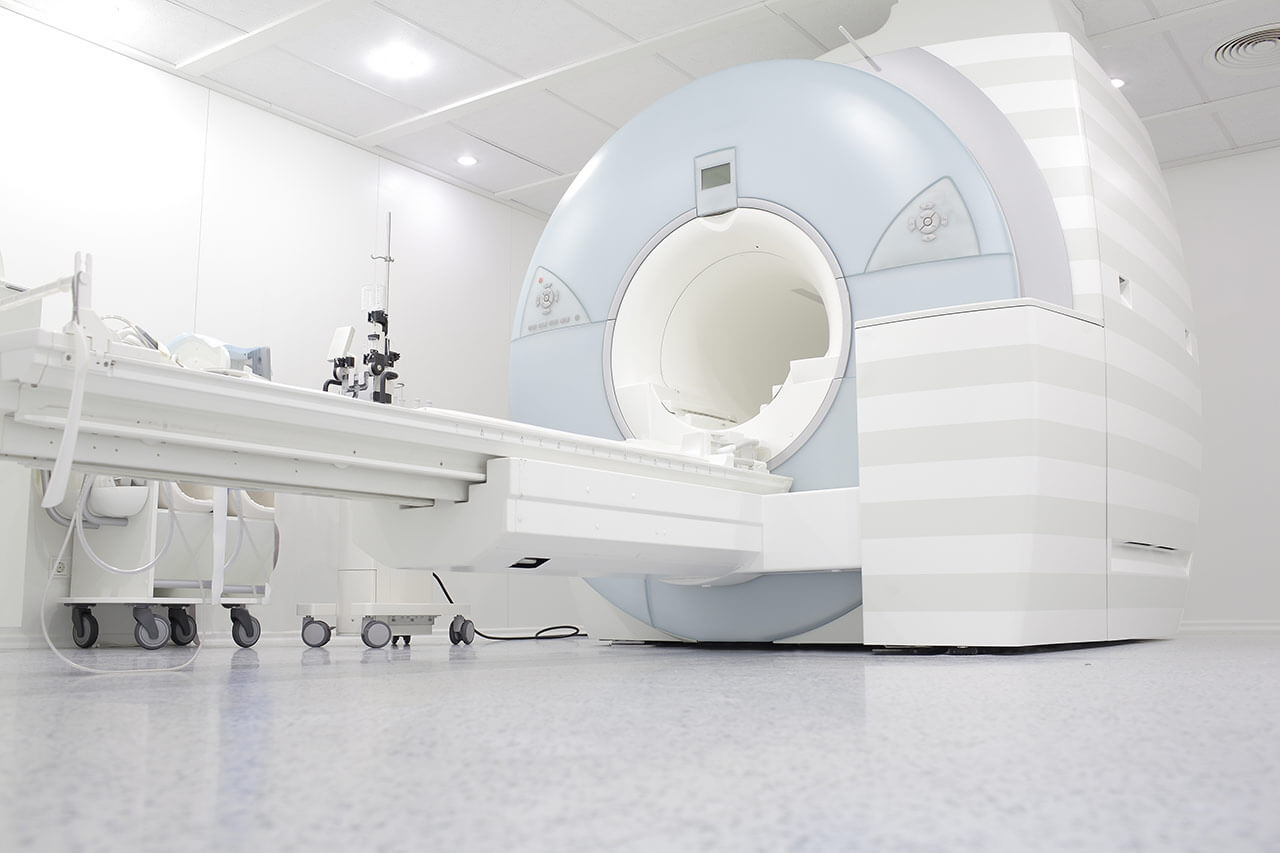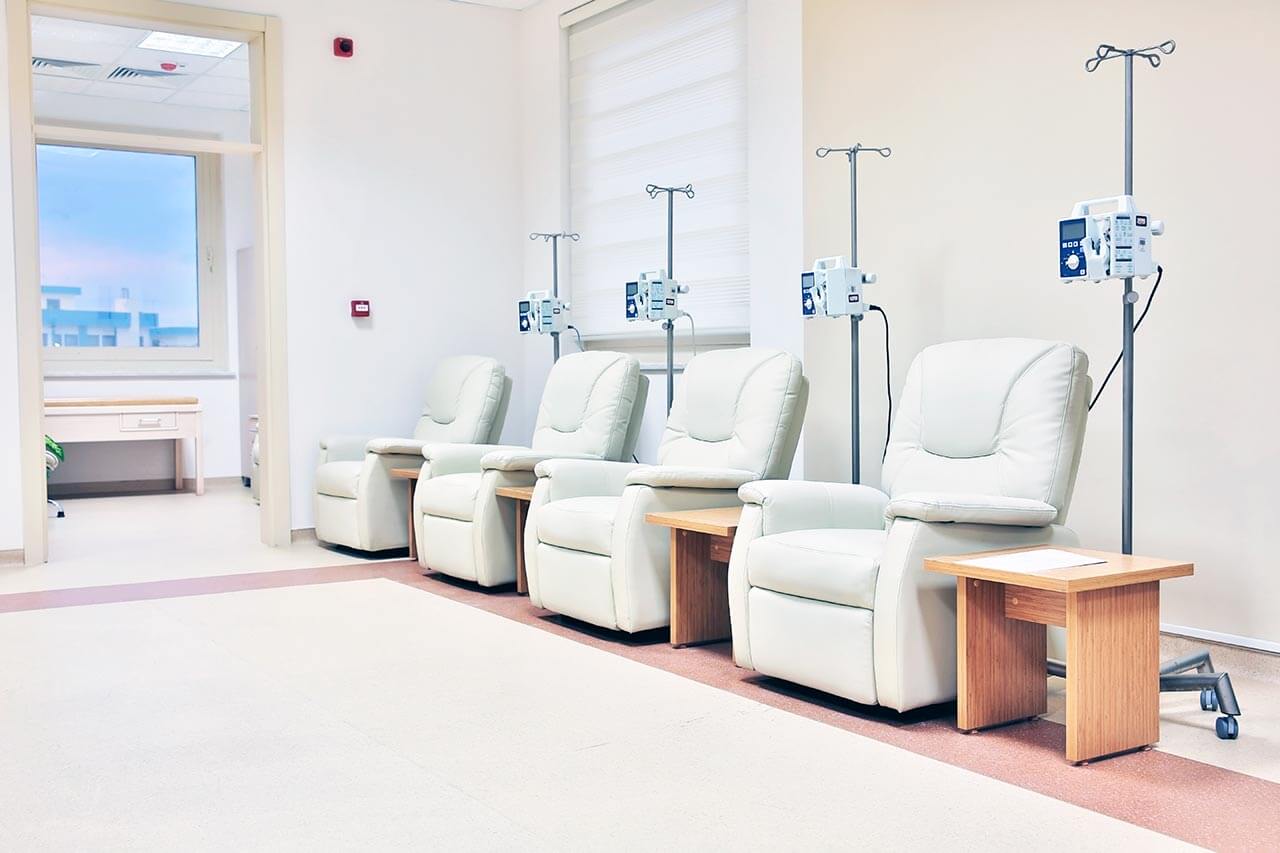
The program includes:
- Initial presentation in the clinic
- clinical history taking
- review of medical records
- physical examination
- laboratory tests:
- complete blood count
- biochemical blood analysis
- blood coagulation analysis (aPTT, PT, INR)
- inflammation indicators (CRP, ESR)
- metabolic analysis of blood
- cardiovascular disease risk markers
- kidney function test (creatinine, urea)
- color doppler echocardiography
- color doppler sonography of cerebral and peripheral vessels
- artery duplex
- CT angiography (on indication 1300 €)
- MRI angiography (on indication 1300 €)
- nursing services
- consultation of related specialists
- consultation of the chief physician and all leading experts
- development of individual treatment plan
- written statement
Service
You may also book:
 BookingHealth Price from:
BookingHealth Price from:
About the department
According to the reputable Focus magazine, the Department of Vascular Surgery and Angiology at the Hospital Nordwest Frankfurt am Main ranks among the best German medical facilities in the field of vascular surgery!
The department offers the full range of surgical and conservative treatments for diseases of the arteries, veins and lymphatic vessels. The department also operates a specialized outpatient clinic for the treatment of chronic non-healing wounds. In the field of vascular surgery, key attention is paid to the treatment of circulatory disorders, vascular stenosis, bypass surgery, stent implantation and percutaneous transluminal angioplasty. Vascular surgeons cooperate closely with radiologists, as most surgical procedures are performed under image guidance. The specialists in the field of angiology provide conservative treatment of deep vein thrombosis, varicose veins and bleeding disorders. The department's medical team has all the necessary medical and technical resources, as well as exceptional professional skills to ensure the effective treatment of vascular pathologies of any severity.The department is headed by Prof. Dr. med. Bratislava Milan Lisy.
The key to successful treatment is accurate diagnostics, and therefore the department's diagnostic rooms are equipped with state-of-the-art systems for continuous-wave and pulse-wave Doppler sonography, duplex ultrasonography, percutaneous oxygen saturation measurement, plethysmography, phlebography, CT, MRI and other diagnostic studies. During the initial consultation, the attending physician studies the patient's medical history, receives information about his complaints, based on which he prescribes the required complex of diagnostic tests, which will help him to determine the nature of pathological changes in the vascular system and effectively eliminate them.
After establishing an accurate diagnosis, the department's specialists make a decision about the forthcoming treatment. Obviously, the preference is always given to conservative and sparing treatment methods. Whenever possible, the department's doctors use only drug therapy (for example, in case of bleeding disorders, deep vein thrombosis), but in many cases a surgical intervention is still required. A huge advantage for the patient is the fact that most surgical procedures in the department are performed using sparing endovascular techniques. The endovascular procedures are performed percutaneously, under image guidance, with the use of special instruments. At the same time, the doctor does not make large incisions in the skin and soft tissues, but small punctures up to 4 mm in size, so the patient can return to his usual life as soon as possible. As a rule, the hospitalization period does not exceed 3 days. The endovascular interventions are performed under local anesthesia, which is also one of the advantages of this type of treatment. Some vascular interventions can be performed on an outpatient basis. For example, the interventions to implant port systems, surgery to form a dialysis access, surgery to treat varicose veins, surgery to implant pacemakers and bronchoscopy are usually performed on an outpatient basis.
The department specializes in the diagnostics and treatment of the following diseases of the arteries, veins and lymphatic vessels:
- Disturbed blood flow in the lower and upper extremities
- Disturbed blood flow in the blood vessels of the brain
- Mesenteric artery stenosis and obstruction
- Thrombosis of various localization
- Arterial and venous stenosis
- Aneurysms, including venous ones
- Varicose veins
- Traumatic vascular injuries
- Vascular malformations
- Vascular tumors
- Chronic non-healing wounds
- Deep vein thrombosis
- Bleeding disorders (for example, antithrombin, protein C or S deficiency, factor V or prothrombin genetic mutations)
- Other vascular diseases
The department’s range of therapeutic services includes:
- Conservative treatment methods
- Drug therapy (for example, for deep vein thrombosis, bleeding disorders)
- Compression therapy (for example, for varicose veins)
- Interventional treatment methods
- Thrombendarterectomy (removal of atherosclerotic plaques and restoration of vascular patency)
- Reconstructive interventions on the subclavian artery
- Interventions for thoracic aortic aneurysms
- Bifurcated aortobifemoral bypass grafting
- Reconstructive interventions on the kidney arteries
- Reconstructive interventions on the mesenteric vessels
- Embolectomy (removal of an embolus from the aorta or small arteries)
- Thrombectomy (blood clot removal)
- Percutaneous transluminal angioplasty
- Stent implantation for vascular stenoses and occlusions
- Sympathectomy (surgery to resect the sympathetic trunk for the treatment of excessive sweating)
- Neurostimulation
- Amputation
- Other treatment methods
Curriculum vitae
On March 1, 2019, Prof. Dr. med. Bratislava Milan Lisy became the Head of the Department of Vascular Surgery and Angiology at the Hospital Nordwest Frankfurt am Main. Since 2017, he has worked as Managing Senior Physician in the same department.
The specialist has long successful experience and thorough clinical training. He received his medical education at the Faculty of Medicine of the Comenius University in Bratislava. This was followed by a Research Fellowship of the German Academic Exchange Service (DAAD). It took place at the Institute of Pathology of the Technical University of Munich. The specialist worked at the following projects: "Study of structural changes in the heart muscle to assess the results of corrective surgery for congenital heart defects in children" and "Immunohistochemical study of the expression of the C9 complement system protein in transplanted heart samples obtained during a biopsy". Prof. Bratislava Milan Lisi also completed an internship in the Department of Cardiology at the Great Ormond Street Hospital in London.
Prior to a position in the Department of Vascular Surgery and Angiology at the Hospital Nordwest Frankfurt am Main, the specialist worked as Senior Physician in the Department of Cardiothoracic Surgery at the University Hospital Tuebingen, as well as Senior Physician in the Department of General, Abdominal, Thoracic and Vascular Surgery at the Hospital Frankfurt Hoechst.
Photo of the doctor: (c) Krankenhaus Nordwest
About hospital
According to the reputable Focus magazine, the Hospital Nordwest Frankfurt am Main ranks among the top German medical facilities!
The hospital has a reputation of a modern multidisciplinary medical center with excellent quality of services. The medical complex is an academic hospital of the Goethe University Frankfurt, thanks to which it provides patients with treatment based on the very latest achievements of university medicine. The hospital has 12 specialized departments, as well as numerous narrowly focussed centers and institutes, whose doctors work hand in hand for the benefit of their patients. The hospital has 582 beds. The medical staff of the hospital annually provides diagnostics and treatment to more than 21,800 inpatients, while over 36,000 patients receive medical care on an outpatient basis.
The hospital presents such medical fields as oncology and hematology, radiation oncology, gynecology, urology, neurology, internal medicine, general and abdominal surgery, thoracic surgery, vascular surgery and others. Each of these medical fields is represented by a professional team of doctors and nursing staff. Oncology is one of the priority focuses of the hospital. In 2008, the Johann Wolfgang Goethe University Hospital Frankfurt together with the Hospital Nordwest Frankfurt am Main founded the University Cancer Center Frankfurt recognized by the German Cancer Aid as one of the best in Germany. In this high-tech center, the patients receive effective interdisciplinary medical care, since not only oncologists, chemotherapists and radiation oncologists are involved in the therapeutic process, but also specialists from related disciplines, including gynecologists, urologists, gastroenterologists, pulmonologists, surgeons and other experts. The patients are also provided with qualified psychological care, which is an integral part of the successful cancer treatment. Thanks to its status as an academic hospital, the medical facility gives patients the opportunity to participate in clinical trials at both national and international levels.
The hospital is proud of its health facilities and state-of-the-art equipment, which plays an important role in the effective diagnostics and treatment. For example, since 2016, the Department of Radiation Oncology has been using cutting-edge Truebeam STx NOVALIS linear accelerators from VARIAN and Brainlab, which allow the doctors to provide highly effective, but very sparing, radiation therapy for cancer treatment. Despite the presence of modern medical technologies in the hospital, the focus of the doctors is on the patient with his individual needs and wishes. The specialists pay attention to creating a friendly atmosphere in the hospital and always demonstrate humanity in relation to their patients.
The outstanding clinical activities of the medical complex are awarded by many prestigious certificates, including certificates of the German Cancer Society in the treatment of bowel, liver, prostate, gynecologic cancers, etc. The Aktion Saubere Hände certificate and a modern quality management system guarantee patients the highest safety standards during both diagnostic and therapeutic procedures.
Photo: (с) depositphotos
Accommodation in hospital
Patients rooms
The patients of the Hospital Nordwest Frankfurt am Main live in comfortable single and double rooms, corresponding to the level of a top-class hotel. Some single rooms have large panoramic windows offering beautiful views of the city of Frankfurt.
The patient room furnishing includes an automatically adjustable bed, a bedside table, a wardrobe with a built-in safe, a desk with a chair and a reading lamp, a TV, a telephone and a mini-fridge. The patient rooms have Wi-Fi (at an extra fee). All patient rooms have an ensuite bathroom with shower and toilet. In the bathroom one can find changeable towels, a bathrobe, a hairdryer and toiletries.
The hospital has a cafe on its territory, where one can not only have a tasty snack, but also buy newspapers, magazines, personal hygiene products, drinks, sweets and much more.
Meals and Menus
The patients of the hospital are offered delicious and varied three meals a day: breakfast, lunch and dinner. Meals are served to patients in their room. During the day, the patients are provided with fresh fruits, juices, coffee, tea and mineral water.
If you are on a specific diet for some reason, you will be offered an individual menu. Please inform the medical staff about your dietary preferences prior to the treatment.
Further details
Standard rooms include:
Religion
The religious services are available upon request.
Accompanying person
During the inpatient program, the accompanying person can live with the patient in a patient room or a hotel of his choice. Our managers will help you choose the most suitable option.
Hotel
During the outpatient program, the patient can stay at the hotel of his choice. Our managers will help you choose the most suitable option.





